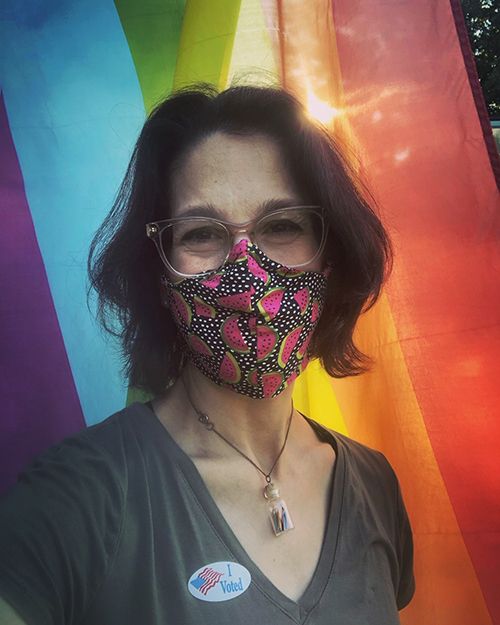
The Contact Hypothesis is a theory that describes the possibilities inherent when people connect. The Contact Hypothesis goes on to say that interactions between people who are of different populations can reduce prejudice. Scientific research has borne this out, however, the answers aren’t as simple as shopping at a grocery store owned by a family of a different ethnicity than the Reasors, or having delivery from Shawkat. Reducing prejudice and sustaining efforts at inclusion through contact takes a little more effort. OCCJ is here to help promote inclusion and breaking down barriers between people.
OCCJ’s mission states, “We are a human relations organization dedicated to achieving respect and understanding for all through education and dialogue. OCCJ seeks to facilitate understanding and empower individuals to create inclusive communities through dynamic diversity and inclusion programming for all ages.” OCCJ uses the Contact Hypothesis model to promote our mission, through our programs like Different and the Same, the Inclusive Leadership Institute, Anytown Leadership Institute, and interfaith dialogue.
The Contact Hypothesis continues to explain that reducing prejudice is most effectively achieved when certain conditions are met. While we live in the real world — outside a laboratory that has ideal variables — we can do our best to promote contact within these parameters. Encouraging groups who are members of similar social groups is one opportunity. OCCJ’s Different and The Same program, which is provided to second graders in Tulsa, is an example of bringing seven- and eight-year-olds together. The students are from different backgrounds, but it’s easy to find common ground centered around Minecraft, Gacha Life, YouTube Kids, and Roblox. Using the same curriculum further enhances the opportunities for young people to relate to each other. This can spark discussion in the home, following the age-old question asked by parents everywhere: “What did you do in school today?” In a reverse of the typical learning experience, parents can get information about inclusion and reducing prejudice from their children.
Finding opportunities to connect with people is a challenge during COVID. However, autumn brings opportunities for outdoor play and even dining that allows more safe interaction. One place that provides my family and me with opportunities to engage with people who are of different ages and beliefs than us is at the dog park! Many of the “regulars” at the Jenks dog park are people who are retired and have adopted dogs to mitigate empty-nest syndrome. While my children’s grandparents all live in other states, I look forward to opportunities for us to meet with others who are in different stages of life, united by a mutual love for dogs.
Another opportunity specifically for young adults is through the OU program aimed at high school kids, Club Scrubs. This program focuses on opportunities for young adults to learn about STEAM careers (science, technology, engineering, arts, and math) with speakers who are members of marginalized communities and backgrounds who have followed paths to STEAM careers. Club Scrubs not only introduces students to opportunities for their futures but also provides ways to recognize people from diverse backgrounds who are engaging in careers that have historically been reserved for white men.
The Contact Hypothesis continues to support the merits of human interaction by recognizing that change can come from everyday individuals. School children and young adults can continue their journey of friendship and community through an inclusive, welcoming lens. Older adults can follow a good example and encourage friendship and fun with people from different backgrounds and histories. The Contact Hypothesis reminds us that we are all citizens of the world, and we can work together and live together in communities that include diversity, equity, and inclusion. OCCJ is proud to provide opportunities for Tulsans to engage across many diverse backgrounds. We look forward to continuing to serve our community through the Contact Hypothesis and our programming!
